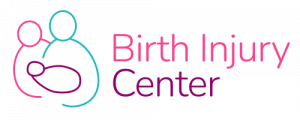Illinois Birth Injury Lawyer
People injured at birth may develop life-long conditions, such as cerebral palsy and Erb’s palsy. If you or your child suffered a birth injury, you may be eligible to file a birth injury lawsuit. If your lawsuit is successful, you will recover financial compensation for past, current, and future medical bills, pain and suffering, and loss of quality of life. Birth Injury Center can connect you with a knowledgeable and experienced Illinois birth injury lawyer.
Birth injuries can lead to lifelong disabilities such as cerebral palsy, affecting your quality of life and ability to make a living. While many birth injuries are unavoidable, many happen because doctors or other health care professionals make mistakes during prenatal care, labor, or delivery.
If you or a loved one suffered a birth injury, you may be eligible to file a lawsuit against negligent health care providers. Birth Injury Center can connect you with an experienced Illinois birth injury lawyer to determine your eligibility.
Contact a lawyer for a free case evaluation today!
What Is a Birth Injury?
Birth injuries are physical injuries sustained by babies during birth. Some are unavoidable, but others are caused by negligence.
Common examples of birth injuries include the following:
- Brachial palsy happens when the group of nerves that supplies the hands and arms is injured. It usually occurs when there is difficulty delivering the baby’s shoulder. People with brachial palsy cannot rotate and flex the affected arm. The most common type of brachial palsy is Erb’s palsy.
- Lack of oxygen during delivery can cause hypoxic-ischemic encephalopathy, which can cause disabilities such as cerebral palsy and even death.
- Forceps marks or bruising happens when the baby is too big for the mother’s pelvis, or the doctor uses forceps during delivery.
- Caput succedaneum is significant swelling of the baby’s scalp. It occurs when the baby travels through the birth canal. Babies delivered through vacuum extraction are more likely to have caput succedaneum.
- Cephalohematoma is a buildup of blood under the scalp. Most cephalohematomas take two to three weeks to disappear. Some babies may develop newborn jaundice when the red blood cells break down. Jaundice can cause brain damage if doctors fail to treat it in time.
- Spinal cord injuries can happen when doctors misuse vacuum extractors and forceps. They can also result from undiagnosed spina bifida and rushed delivery. Severe spinal cord injuries can leave a baby with permanent physical limitations and paralysis.
- Meconium aspiration syndrome occurs when a baby inhales a mixture of meconium and amniotic fluid during delivery. Meconium is the newborn’s first feces. Inhaling it can lead to breathing problems and oxygen deprivation.
The mother can also suffer a birth injury. Common injuries to the mother include the following:
- Postpartum hemorrhage
- Incontinence
- Vaginal tears
- Abnormal blood pressure
- Uterine tears
- Chronic pain
- Maternal death
What Causes Birth Injuries?
Several conditions can cause birth injuries. These include the following:
- Prematurity: Babies born before 37 weeks are more likely to get injured due to having more fragile bodies.
- Large babies: Babies who weigh over eight pounds, 13 ounces, are more likely to result in birth injuries. Doctors may need to use vacuums and forceps during delivery because large babies are more likely to get stuck in the birth canal. Injuries such as hematomas and retinal hemorrhage may occur when doctors fail to use vacuums and forceps properly.
- Breech delivery: Babies born feet or bottom first are breech babies. Breech babies may have a flattened or twisted umbilical cord, causing brain or nerve damage due to a lack of oxygen.
- The mother’s pelvis is too small: Sometimes, the mother’s pelvis is too small for the baby to be born vaginally. If the doctors fail to perform a Cesarean section in time, the baby may not get enough oxygen, leading to brain damage.
Who Is Liable For My Child's Birth Injury?
If the doctors, nurses, and other medical professionals assisting with delivery fail to meet the standard of care before, during, or after delivery, they may be liable for your child’s birth injury.
The standard of care is the benchmark determining whether health care professionals have met their professional duty to patients. It requires medical practitioners to do the following:
- Monitor the health of the mother and baby throughout pregnancy and childbirth. The health care team should check for signs of fetal distress throughout pregnancy and childbirth, including abnormal heart rate, abnormal amniotic fluid, decreased movement, and vaginal bleeding. Once they detect a problem, they should address it to avoid infant and maternal injuries. Failure to detect and treat signs of fetal distress can cause meconium aspiration and oxygen deprivation.
- Recognize when vaginal delivery may be dangerous to the mother and baby. Obstetricians and other health care professionals should know when a Cesarean is necessary or recommended.
- Be aware of the dangers of various interventions for aiding vaginal delivery. Forceps and vacuum extractors, for instance, may lead to birth injuries if misused. Similarly, drugs that enhance contractions, such as cytotec and pitocin, can cause uterine hyperstimulation, which may deprive the newborn of oxygen.
- Intervene promptly when necessary. Doctors should take action when they see an issue with the child or mother. For example, they should diagnose and treat newborn jaundice promptly.
To learn more about who is liable for your child’s birth injury, book an appointment with a Birth Injury Center lawyer in Chicago, Illinois.
How Long Do I Have to File a Birth Injury Claim?
Every state has a statute of limitations or deadline for filing birth injury claims. If you do not meet this deadline, you will lose the right to pursue a birth injury claim for your child.
In Illinois, parents can make birth injury claims within eight years of the date of the injury if the child is under 18. In some cases, the deadline can extend until the child’s 22nd birthday. For maternal injuries, the deadline is two years after the discovery of the injury but no more than four years after the incident.
The Illinois birth injury statute of limitations is complex and can pass in the blink of an eye, especially if it takes years for the consequences of your child’s birth injury to appear. For instance, you may not receive a cerebral palsy diagnosis until age two or later, while an intellectual disability may not become apparent until six or seven. An Illinois birth injury lawyer can help ensure you don’t miss the deadline to file a lawsuit.
How Our Chicago Birth Injury Lawyers Can Help
If you or your child had a birth injury, contact Birth Injury Center. Our team includes Illinois birth injury lawyers, family members of people with cerebral palsy and autism, and health care providers well-versed in birth injuries. We provide free resources about birth injury lawsuits, including answers to frequently asked questions.
Our Illinois birth injury attorneys handle various birth injuries and consequences, including Erb’s palsy, cerebral palsy, delivery complications, and pregnancy complications such as placental previa and placental abruption. Specifically, they can help you:
- Determine your birth injury lawsuit eligibility: Your lawyer can analyze your case and determine whether you can file a lawsuit. They will see if you have enough evidence to demonstrate your health care providers failed to meet the standard of care and their negligence caused your child’s birth injury.
- Get expert witness testimony: If you are eligible for a birth injury lawsuit, your attorney will help you find the right expert witness or consultant for your case. An expert witness can give the opposing side an impartial opinion on the extent of your child’s injuries. Your lawyer can then use this information to negotiate a higher settlement or trial verdict.
- Calculate damages: Your lawyer can also calculate the compensation you deserve. Depending on your child’s injuries, you and your family may be eligible to receive compensation for physical therapy, medical fees, lost wages, prescription drugs, pain and suffering, and medical equipment.
- Litigate your case in court: If the opposing side refuses to settle, your lawyer can take your case to court. Trial verdicts often result in higher payouts.
Do not miss out on potential compensation for your child’s injuries. Contact the Birth Injury Center today to learn more about your legal options.
Written by:
Birth Injury Center Team
The Birth Injury Center aims to create informational web content and guides to help women and their families seeking support and guidance for birth injuries caused by medical negligence. All of the content published across The Birth Injury Center website has been thoroughly investigated and approved by medical expert Natalie Speer, RNC-OB, Attorney Ryan Mahoney.

